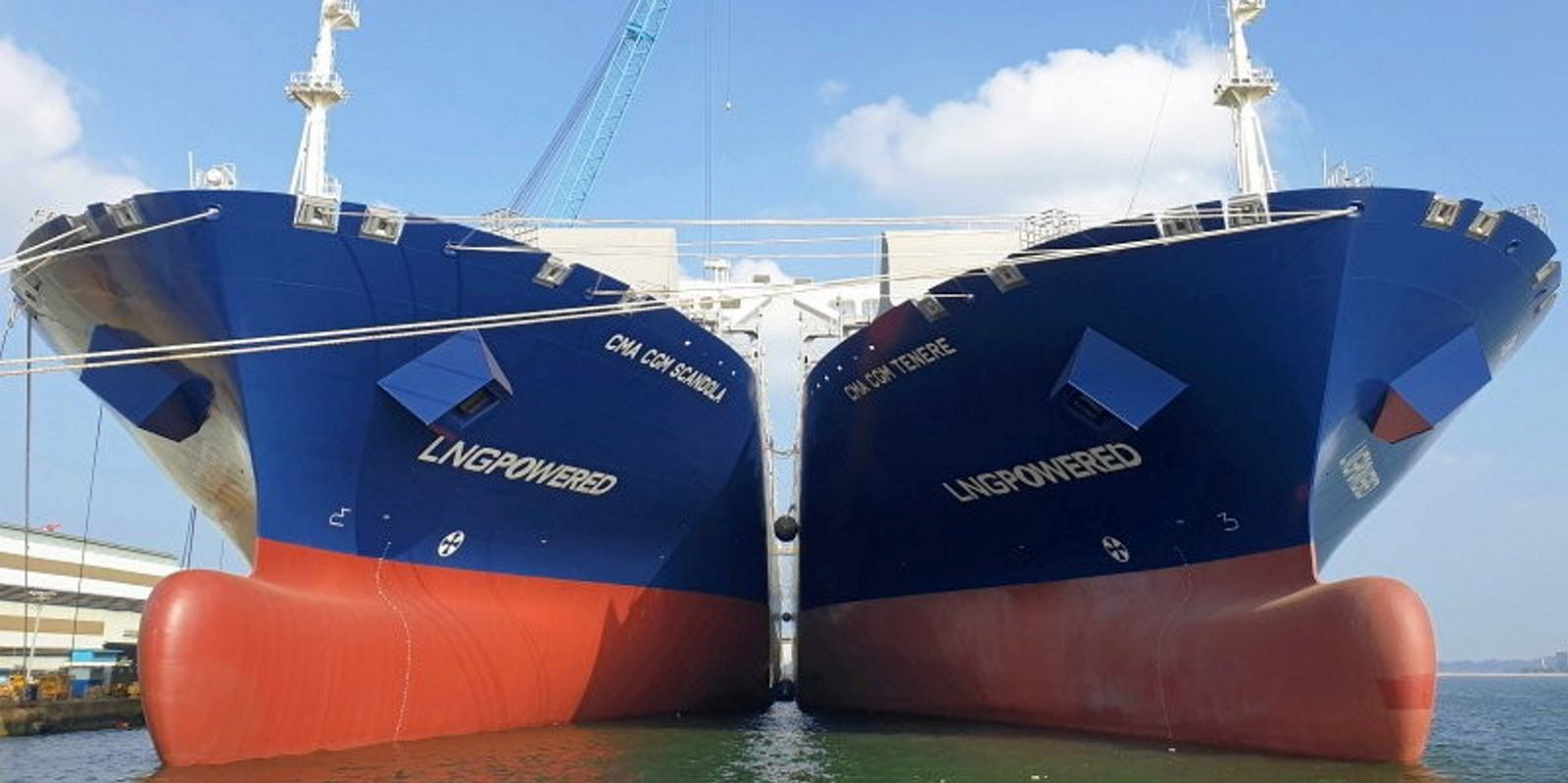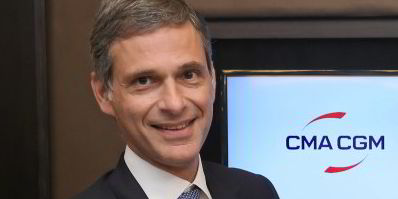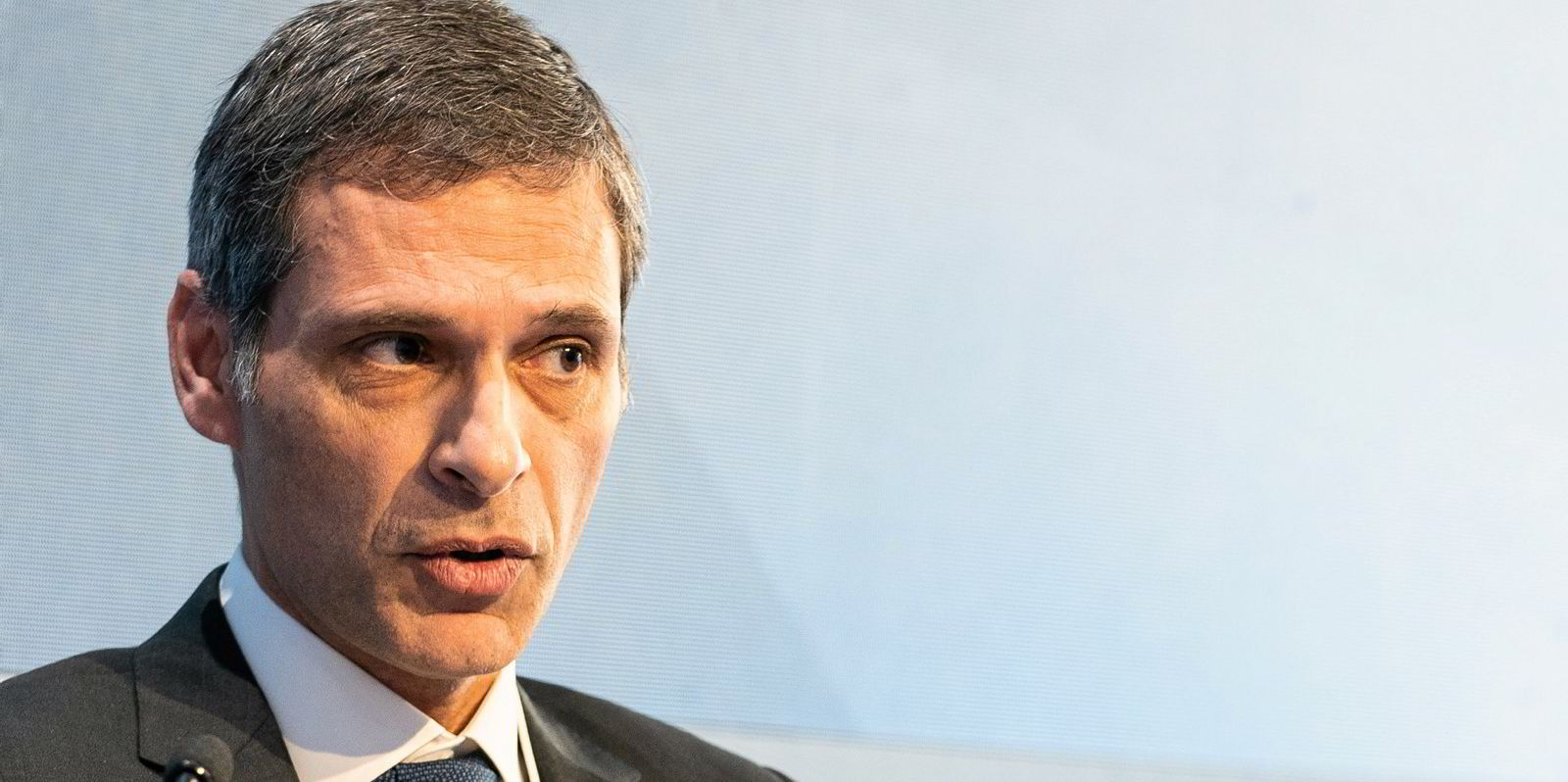The $1.5bn energy transition fund set up by CMA CGM aims to take it from LNG fuelling of its container ships to lower-carbon alternatives across all its operations over the next five years.
The French liner giant said the fund has been “tasked with driving forward the emergence of industrial-scale production facilities for biofuels, biomethane, e-methane, carbon-free methanol and other alternative fuels”.
It will work to increase and secure volumes of these fuels in line with the group’s needs, in partnership with industrial groups that have expertise in the technologies, or by investing in funds or promising start-ups.
CMA CGM has already launched several projects that the funding will help develop.
The Salamander Project aims to produce 11,000 tonnes of second-generation biomethane per year from 2026 in a partnership with French utility Engie. Its target is to generate 200,000 tonnes of renewable gas per year by 2028 to serve the needs of CMA CGM and the wider shipping industry.
A biomethane production and liquefaction project, developed with supplier Titan, will also produce up to 100,000 tonnes by 2025, with the possibility of doubling output by 2027, and CMA CGM is a partner in the Jupiter 1000 consortium project in Fos, France, to mass-produce low-carbon e-methane.
CMA CGM also intends to decarbonise its port terminals, warehouses and truck fleets.
It said it is committed to enabling the 700 warehouses and 50 terminals it operates worldwide to generate enough carbon-free electricity from wind, solar, biomass and hydrogen to become energy self-sufficient.
Distribution subsidiary CEVA Logistics aims to meet all its electricity needs through carbon-free power generation by 2025. It plans to install 1.8m square metres of solar panels and electrify its trucks.
The group will also continue to back start-up projects such as the Energy Observer 2 partners, which are working on a prototype intra-regional container ship fuelled by liquid hydrogen.
CMA CGM has a stake in Neoline, a prototype sail-powered cargo ship set to serve transatlantic routes by the end of 2024.
Chief executive Rodolphe Saade said CMA CGM has been acting to protect the environment for many years.
“It is at the heart of my convictions and of our strategy. However, in the face of the climate emergency, it is our duty to do more and accelerate our actions,” he said.
“We have allocated the resources needed to accelerate our energy transition and that of the entire shipping and logistics industry.”
The fund approach to some extent mirrors the efforts of the Maersk Mc-Kinney Moller Center for Zero Carbon Shipping, which aims to help decarbonise the wider maritime industry beyond the efforts of Danish container shipping rival AP Moller-Maersk.
The International Chamber of Shipping was among industry leaders attempting to set up a $5bn research and development fund for alternative fuels and technologies at the International Maritime Organization, but the proposal was rejected.





